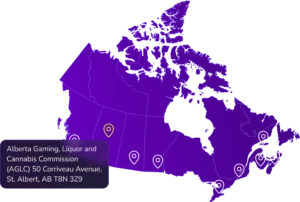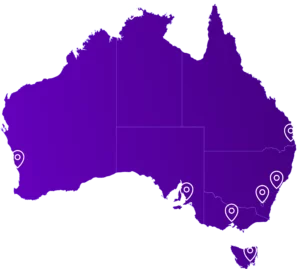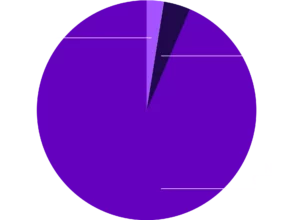What is responsible gambling?
Responsible gambling is engaging in gambling activities in a way that underestimates potential harm. It includes setting limits on time and money spent, understanding the risks, and knowing when to stop.
Can gambling be fun without risks? Responsible gambling stipulates a way to balance enjoyment with safety.
2% of Canadian gamblers face severe addiction, costing $14 billion annually. In New Zealand, 26,000 seek gambling harm treatment yearly. UK operators pay £44 million in fines for breaches of responsible gambling rules. Australia invests $200 million in harm prevention (self-exclusion and deposit limits).
This article serves gamblers seeking fun without risk, operators striving for ethical leadership, and researchers exploring solutions to a $500 billion industry challenge.
Responsible gambling ensures that gambling remains an enjoyable activity. It means implementing measures to
It promotes informed decisions through tools like
Globally, around 85% of adults gamble responsibly. But 1–2% face severe addiction, according to the WHO.
Gambling is meant to be a source of entertainment, like going to a movie or a concert. Step back and reassess your habits if they cause stress, arguments, or financial strain.
| Informed Choice | Providing clear odds and risks to gamblers to ensure transparency. |
| Financial Safety | Tools like deposit limits have reduced spending by up to 50% in Australia and New Zealand. |
| Self-Regulation | Self-exclusion programs help over 400,000 gamblers in the UK. |
Gambling addiction affects 0.5–2% of adults globally. It leads to economic costs exceeding $14 billion annually in Canada alone.
In New Zealand, problem gambling contributes to over 26,000 treatment cases yearly. Responsible gambling practices safeguard individuals while protecting the industry from reputational harm.
Understanding the odds of each game is crucial for responsible gambling. Play, knowing the risks, and never gamble out of desperation to recover what you’ve lost.
Gambling practices vary widely across Canada, New Zealand, Australia, and the UK.
For instance, Canada emphasises prevention and awareness. New Zealand promotes safe habits. Australia combats gambling addiction. The UK also leads with ethical practices in gambling and ethical regulatory frameworks.
Below are key strategies, statistics, and research to foster responsible gambling.
Canada places significant emphasis on gambling prevention and awareness.
The Canadian Centre on Substance Use and Addiction shows that about 3.2% of Canadians meet the criteria for moderate to severe gambling issues.
British Columbia and Ontario are leaders in this area. They have organizations like the Responsible Gambling Council (RGC) and proactive measures like GameSense.
Dr. Robert Williams from the University of Lethbridge has explored gambling trends in Canada. He believes effective prevention strategies can reduce gambling-related harm by up to 15%.
Risk Levels Among Past – Year Gamblers (Canada)

Source: Statistics Canada | Canada Statistique
The following organisations function across the country:

| Province | Organisation Name | Phone Number | Address |
| Alberta | Alberta Gaming, Liquor and Cannabis Commission (AGLC) | 780-447-8600 | 50 Corriveau Avenue, St. Albert, AB T8N 3Z9 |
| British Columbia | British Columbia Lottery Corporation (BCLC) | 1-888-388-8888 | 74 West Esplanade, North Vancouver, BC V7M 1A2 |
| Manitoba | Manitoba Liquor and Lotteries Corporation | 204-957-2500 | 1555 Buffalo Place, Winnipeg, MB R3T 1L8 |
| New Brunswick | New Brunswick Lotteries and Gaming Corporation | 506-453-2000 | 20 McGloin Street, Fredericton, NB E3A 5T8 |
| Nova Scotia | Gambling Awareness Nova Scotia (GANS) | 902-424-1173 | 1690 Hollis Street, Halifax, NS B3J 3J9 |
| Ontario | Responsible Gambling Council (RGC) | 1-888-230-3505 | 1000-20 Eglinton Avenue West, Toronto, ON M4R 1K8 |
| Prince Edward Island | Prince Edward Island Lotteries Commission | 902-368-4200 | 11 Kent Street, Charlottetown, PE C1A 7N8 |
| Quebec | Loto-Québec | 1-866-611-5686 | 500, rue Sherbrooke Ouest, Montréal, QC H3A 3S6 |
| Saskatchewan | Lotteries and Gaming Saskatchewan | 1-800-667-7567 | 2010 – 11th Avenue, Regina, SK S4P 0J3
|
In 2023, gambling expenditures in New Zealand reached NZD 2.63 billion. The government focuses on creating a culture of safe gambling. The Problem Gambling Foundation (PGF) and public health strategies underscore community involvement.
According to Dr. Max Abbott at AUT University, about 0.5% of the population suffers from gambling addiction, with another 1.5% at moderate risk.
Growth of problem gambling in New Zealand

Source: AUT Gambling & Addictions Research Centre
The Gambling Harm Reduction Needs Assessment demonstrates the importance of the targeted interventions. It particularly points to the vulnerable groups like Māori and Pasifika communities.
If you need any assistance, address these organisations:
| Organisation | Phone Number | Address |
| Problem Gambling Foundation | 0800 664 262 | 128 Khyber Pass Road, Ground Floor, Grafton, Auckland 1023, New Zealand |
| PGF Services (Wellington) | 0800 664 262 | 5-7 Vivian Street, Te Aro, Wellington 6011, New Zealand |
| PGF Services (Hamilton) | 0800 664 262 | 109 Anglesea Street, Hamilton 3204, New Zealand |
| PGF Services (Christchurch) | 0800 664 262 | Eastgate Mall, Buckleys Road, Linwood, Christchurch 8062, New Zealand |
| PGF Services (Dunedin) | 0800 664 262 | Dunedin Community House, 43 Princes Street, Dunedin 9016, New Zealand |
| Gambling Helpline | 0800 654 655 | Not specified |
Australia’s gambling industry is among the largest globally, with Australians losing AUD 25 billion annually—an average of AUD 1,276 per adult.
Total Gambling Expenditure (Net Losses), in Billion USD

Source: AIHW
This statistic places Australia at the top of global gambling losses per capita.
The following programs aim to combat gambling addiction:
Research by Professor Charles Livingstone from Monash University highlights the link between electronic gaming machines (EGMs) and problem gambling.
His work in the Journal of Gambling Studies reveals that EGMs account for nearly 80% of gambling-related harm in Australia.

| State/Territory | Organisation | Phone Number | Address |
| New South Wales | NSW Government — Responsible Gambling | 1800 858 858 | 10 Valentine Ave, Parramatta, NSW 2150 |
| Victoria | Victorian Responsible Gambling Foundation | 1300 182 457 | Level 3, 1-3 Malthouse Way, Southbank, VIC 3006 |
| Queensland | Queensland Government — Gambling Help | 1800 858 858 | 1 William Street, Brisbane, QLD 4000 |
| Western Australia | Department of Local Government, Sport and Cultural Industries | 08 6551 8000 | 140 William Street, Perth, WA 6000 |
| South Australia | Office for Problem Gambling | 1300 133 036 | Level 5, 81-95 Waymouth Street, Adelaide, SA 5000 |
| Tasmania | Tasmanian Government — Gambling Support | 1300 135 513 | Level 2, 15 Murray Street, Hobart, TAS 7000 |
| Australian Capital Territory | ACT Gambling and Racing Commission | (02) 6207 0111 | Level 1, North Building, Canberra City, ACT |
| Northern Territory | Northern Territory Government — Gambling | (08) 8999 1999 | Ground Floor, NT House, Darwin NT 0800 |
The UK stands out globally for its robust regulatory framework from the UK Gambling Commission (UKGC).
In 2023, gambling revenue in the UK reached £10.2 billion, with approximately 0.5% of adults classified as problem gamblers, according to the Gambling Health Alliance.
Approach gambling as a leisure activity, not a way to earn money. Treat every dollar you bet as the cost of entertainment and avoid betting more than you can afford to lose.
The UK’s mandatory GamStop self-exclusion scheme and affordability checks for online gambling reflect its commitment to ethical practices.
By 2024, the number of problem gambling persons was as follows:
Problem gambling in the UK

Source: UKGC
Dr. Heather Wardle (University of Glasgow) suggests that the UK’s multifaceted approach has reduced gambling-related harms by 20% over the past decade.
| Organisation | Phone Number | Address |
| Responsible Gambling Trust (RGT) | +44 20 3772 2626 | 35 Piccadilly, London, England W1J 0DW, UK |
| GamCare | 0808 8020 1333 | 2nd Floor, 1-5 Coney Street, York, YO1 9JF, UK |
| National Gambling Helpline | 0808 8020 1333 | Not specified |
| Gambling Commission | +44 300 1000 230 | Victoria Square House, Victoria Square, Birmingham B2 4BP, UK |
| Gordon Moody Association | +44 20 7286 9007 | Unit 3, 1 Castlegate Way, Dudley DY1 4RD, United Kingdom |
| BeGambleAware | Not specified | Not specified |
Responsible gambling involves using practical tools and strategies to ensure that gaming remains a safe and enjoyable activity.
 
Be aware of the early signs of problem gambling, such as neglecting responsibilities, hiding your gambling habits, or feeling guilt about losses. Addressing these signs early can make a big difference.
To reduce the risks of gambling-related harm, players can adopt the following tips:
According to the UKGC, 63% of gamblers use self-exclusion or time-limiting tools to control their habits.
Time management is essential. Employ these techniques to limit time spent on gambling:
Dr. Heather Wardle suggests that time limits significantly reduce problem gambling behaviours. Her research shows a 15% decrease in impulsive gambling seen among participants who used time-management tools.
Maintaining self-control is a crucial part of responsible gambling. Effective self-control strategies are:
A study by the Responsible Gambling Council found that self-exclusion programs reduced gambling participation by 30% in participants who used the service.
Self-assessment tools are essential for individuals to evaluate their gambling behavior and identify potential risks.
These tools help players reflect on their gambling habits, set boundaries, and seek assistance if necessary. Below are some commonly used tools and their effectiveness:
According to the National Gambling Study in Australia, 42% of those who used self-assessment tools reported a decrease in gambling frequency and spending within 6 months
Key features of self-assessment tools comprise the following:
65% of individuals who completed a self-assessment tool showed improved awareness of their gambling habits.
| Tool | Primary Focus | Effectiveness (%) |
| Gambling Risk Assessment Scale | Identifying at-risk behaviour | 70% |
| DSM-5 Criteria | Clinical gambling diagnosis | 80% |
| Gamblers Anonymous Self-Test | Personal reflection and guidance | 60% |
40% of participants who utilised gambling self-assessment tools were more likely to seek professional help.
This simple questionnaire helps identify potential signs of problem gambling. Please answer each question with Yes or No.
| Question | Yes | No |
| Do you often gamble for more extended periods than you originally planned? |
|
|
| Have you ever borrowed money or sold personal items to fund your gambling? |
|
|
| Do you feel anxious or upset when you are unable to gamble? |
|
|
| Have you tried to reduce your gambling but found it difficult? |
|
|
| Do you often think about gambling even when you’re not playing? |
|
|
| Do you gamble to escape from stress or emotional problems? |
|
|
| Have you ever lied to others about how much or how often you gamble? |
|
|
| Do you find yourself returning to gambling after losing money in an attempt to win it back? |
|
|
| Has your gambling caused problems in your relationships with family, friends, or colleagues? |
|
|
| Do you feel guilty or regretful after gambling? |
|
|
For each Yes answer, assign a score of 1 point. For each No answer, assign 0 points.
| Number of points | Result | Specification |
| 0–3 points | Low risk of problem gambling | You may enjoy gambling recreationally with limited risk. However, continue to monitor your gambling habits. |
| 4–6 points | Moderate risk of problem gambling | Your gambling behaviour may be starting to show signs of concern. Consider evaluating your habits more closely, and seek advice or support if needed. |
| 7–10 points | High risk of problem gambling | Your gambling behaviour may be causing significant harm to your life. You should seek professional help or contact a support group. |
Gambling operators must promote ethical practices and ensure that gambling remains a safe and responsible activity for players. Their responsibilities go beyond offering games:
Staff training is essential for gambling operators to support players and spot early signs of problem gambling effectively.
Operators must ensure their teams are well-equipped to handle sensitive situations and direct individuals to resources when needed.
Support Channels
Operators are also responsible for establishing clear support channels. In 2023, over 50% of UK online gambling platforms offered
The scientific community plays a crucial role in understanding the causes of gambling addiction and developing evidence-based strategies for its prevention.
Dr. Robert Williams (University of Lethbridge) emphasises the importance of early intervention and education to mitigate gambling addiction.
His work, published in International Gambling Studies, revealed that preventive programs could reduce gambling-related harm by 20–30% in high-risk populations.
Governments worldwide have implemented policies, regulations, and frameworks to ensure that gambling remains safe and fair.
In Australia, the NCPF was launched in 2019 to protect consumers from gambling-related harm. This framework includes self-exclusion programs and limits on gambling advertising.
Set boundaries before you start playing—limits on time, money, and emotional investment. These limits are your safety net, keeping gambling a fun and positive experience.
Governments allocate funds to support gambling addiction services.
For example, in 2023, the New Zealand government allocated NZD 8.6 million for gambling harm prevention initiatives. This funding supports
According to the Australian Gambling Research Centre, 20% of Australian adults are exposed to responsible gambling programs funded by the government. They have positive feedback on reducing gambling-related harm.
Australian Gambling Research Centre. “Government Funding and Responsible Gambling Programs: An Impact Assessment.” Australian Gambling Research Centre, 2023, www.australiangamblingresearch.org.au.
Responsible gambling is engaging in gambling activities in a way that underestimates potential harm. It includes setting limits on time and money spent, understanding the risks, and knowing when to stop.
To gamble responsibly, be sure to
Various tools include
Operators promote responsible gambling through features like
They also train staff to identify and assist at-risk players.
Signs include
Help is available through national helplines, online support forums, and organisations like GamCare in the UK, Gambling Help in Australia, and ConnexOntario in Canada.


Subscribe and get a bonus

